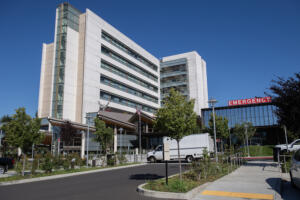The city of Camas finds itself in the middle of state and federal laws when it comes to the legality of medical marijuana collective gardens, and in response the City Council has passed a resolution that effectively makes them illegal within city limits.
Last night in a 6-0 vote the Camas City Council passed the resolution that recognizes the city’s existing adopted code and language requiring all permitted uses to be in compliance with local, state and federal requirements.
Councilwoman Linda Dietzman was absent.
The language of the resolution is similar to one adopted by the Pasco City Council in June, which makes collective marijuana gardens illegal because its municipal code does not allow any use which is in violation with local, state or federal laws, regulations, codes or ordinances.
In May 2011 the State Legislature passed a law allowing collective gardens, but Gov. Chris Gregoire vetoed parts of it.
The state law permits qualifying patients to produce, grow and deliver up to 45 cannabis plants to serve no more than 10 qualifying patients for medical use. It is an extension of an initiative passed by Washington voters in 1998 that allows the use of marijuana for medical purposes.



